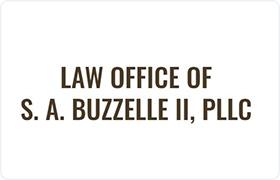Buckeye Workout Lawyer, Arizona
Sponsored Law Firm
-
 x
x

Click For More Info:
-
Law Office of S.A. Buzzelle II, PLLC
14050 N 83rd Avenue Suite 290 Peoria, AZ 85381» view mapBankruptcy & Debt Law Your Trusted Bankruptcy Attorney
If you are in need of legal services for matters relating to bankruptcy and divorce, rely on Law Office of S. A. Buzzelle II, PLLC in Peoria, AZ.
800-873-4991
Not enough matches for Buckeye Workout lawyer.
Below are all Buckeye Bankruptcy & Debt lawyers.
Bert Roos
✓ VERIFIED *Status is reviewed annually. For latest information visit hereBert L. Roos, Personal Counsel is an attorney whose practice is primarily in the area of family law, such as Divorce, Child Custody, Child Support, Sp... (more)
Carl R Retter
✓ VERIFIED *Status is reviewed annually. For latest information visit hereCarl is able to provide unique focus to every case. There is no “middle-man” – you speak directly with him, ensuring no case details are lost in... (more)
Sean Robert Forrester
✓ VERIFIED *Status is reviewed annually. For latest information visit hereSean Forrester, managing attorney at Lerner and Rowe Law Group, has made a career advocating for the rights of the citizen accused. Mr. Forrester has ... (more)
Benjamin Wright
FREE CONSULTATION
CONTACTChristopher R. Stovall
Denise K. Aguilar, Esq.
Kristin W. Mazon
Kyle A. Israel
Meredith H. Flori
FREE CONSULTATION
CONTACTPeter H Westby
FREE CONSULTATION
CONTACT Stanley A. Buzzelle II Peoria, AZ
Stanley A. Buzzelle II Peoria, AZ Practice AreasExpertise
Practice AreasExpertise


